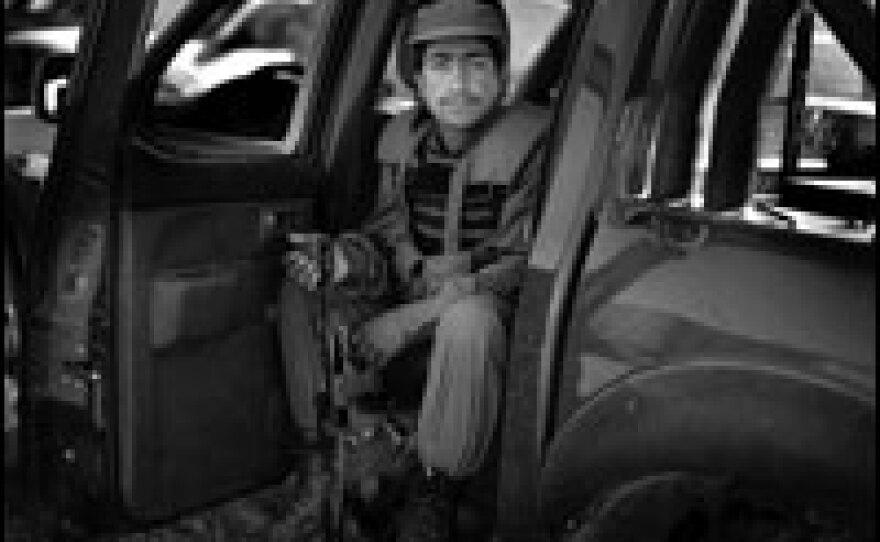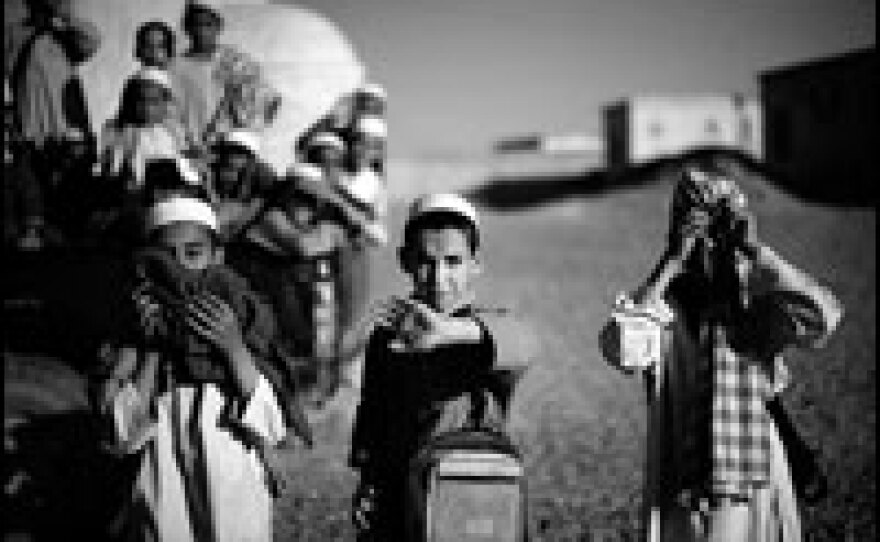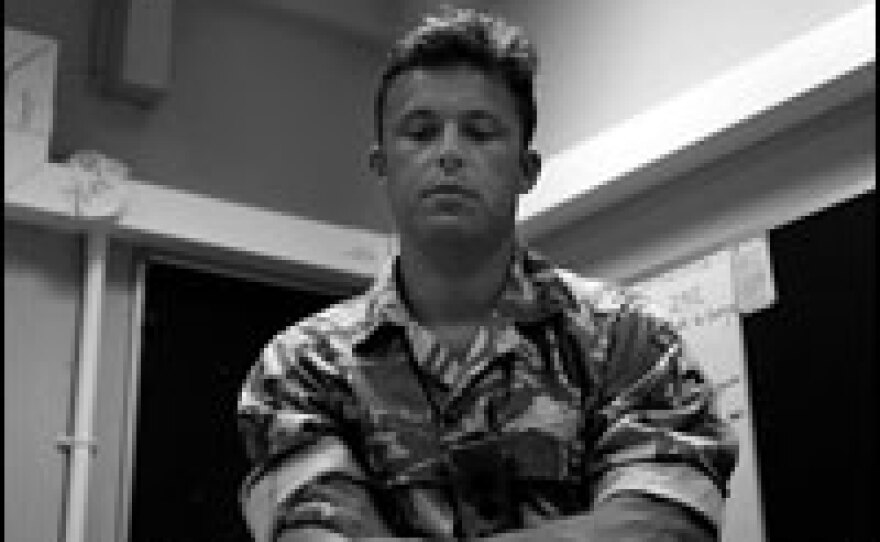


If U.S. policy is to be successful in Afghanistan, it will depend largely on the work of people like Army Maj. Jim Contreras, the American in charge of training Afghan police in southern Helmand province.
Building a professional Afghan National Police force is considered key to the war against the Taliban. Unlike U.S. or NATO troops, Afghan police know better the neighborhoods and the people — and who is an insurgent, and who is not.
There are about 3,000 Afghan police in the entire province. That number needs to double, American and British trainers say. Contreras commands several police training teams in Helmand, a haven for Taliban insurgents and the main source of their cash: the poppy fields that produce heroin.
Contreras, 42, gazes out the bulletproof window of his Cougar, a massive armored vehicle that resembles a Brink's truck on steroids. Local kids throw stones at the convoy as it rolls down the dusty main street of Lashkar Gar, the provincial capital of Helmand province.
Contreras contends that the rocks are not necessarily anti-American — more like kids throwing snowballs at passing cars.
Eliminating The 'Ten Dollar Tabies'
The serious threat comes not from children, but from what the soldiers call the "Ten Dollar Tabies" — disaffected and unemployed locals who are paid by the Taliban to take shots at U.S. and NATO troops. In the capital, it is too dangerous for foot patrols.
"We could probably do it, but all it takes on a foot patrol is one potshot," Contreras says.
Officials say they believe the so-called Tabies make up the bulk of the insurgency. Making improvements to the region and creating jobs will help weaken the Taliban, Contreras says.
"You know, they need a job, and that is a job just like anything else out here. So if you go [improve] the infrastructure, it takes away that $10-a-day Taliban and they can make $12 a day doing something productive," he says.
But the economy cannot be strengthened until security comes. Contreras, a pleasant and compact National Guardsman from Richmond, Va., sells surgical equipment in his civilian life. Here, he's part of Task Force Phoenix, the American effort to expand the training teams and build up the Afghan police force.
British army Lt. Col. Jasper De Quincy Adams works with the provincial police chief as part of the mentoring efforts.
"The police by default are going to be very much right on the front line of an insurgency, because they are in with the population, in small, isolated locations often, and operating really at the very, very extreme ends of risk," he says.
Police Training Behind Schedule
De Quincy Adams and his American partners say they are two years behind in training the police. The war effort in Iraq diverted troops and money. Until now, most of the coalition's effort has been directed toward training and equipping the Afghan army.
De Quincy Adams says he is looking forward to the arrival of thousands more U.S. Marines to counter the resurgent Taliban. President Obama has ordered 21,000 troops to Afghanistan.
"They understand counterinsurgency probably better than any other single organization," de Quincy Adams says of the Marines. "So we're really confident that they will come to very similar conclusions that we have — and that is that investing to train the indigenous forces is one of the prerequisites to success."
At a derelict site that was once an asphalt factory, Contreras is surveying a vacant lot and a low concrete building surrounded by piles of trash and debris. It will serve as a temporary training site for Afghan police recruits.
"It's going to be a tent city, so we have the capability of training 200 police just like that within eight weeks. It all comes down to resources," Contreras says.
A cluster of men gathers around the American soldiers.
Among them is Nawab, 45, who, like many Afghans, goes by only one name. He says he was once a farmer in an area to the north, but security was so bad that he moved his wife and seven children to Lashkar Gar, where he joined the police.
Security First, Then Back To The Farm
"There is no security in my country," Nawab says, explaining why he joined. "Definitely, I cannot work as a farmer. A farmer also needs security, so I have to work to secure the area, then I can work on my farm," he says through an interpreter.
Police here are four times more likely to die than an Afghan soldier, according to officials. Behind Nawab is the twisted wreckage of a police vehicle, destroyed in a suicide blast a few weeks ago that killed four people.
Nawab, a small, thin man with a full beard and sunglasses, says he has lost 45 police colleagues to insurgent violence "starting from last year until now."
Young men listening to Nawab say they are working for a private security company but they really want to join the police.
"That's why we are here. We have left our families and our houses and our relatives to join the police," one of them says in Pashto.
Until the Marines are in place, the job of training the Afghans will continue to fall to the British, along with Contreras and his training teams.
But the challenge in Helmand province goes beyond simple numbers of police. There is the continuing worry of Taliban infiltration, or police recruits who quit because of threats against their families. And corruption in the force is a concern, along with possible involvement in the country's thriving narcotics trade.
Contreras is scheduled leave for home at the end of the summer. He hopes the training site will be up and running by then.
"I want to start seeing bulldozers there. I'm hoping to see a completed training started. I want to see more police on the street," he says.
Contreras has another hope. His 18-year-old son Justin joined the Virginia National Guard. He hopes his efforts will take hold, so his son won't have to follow him here.
Copyright 2022 NPR. To see more, visit https://www.npr.org. 9(MDAzMjM2NDYzMDEyMzc1Njk5NjAxNzY3OQ001))







